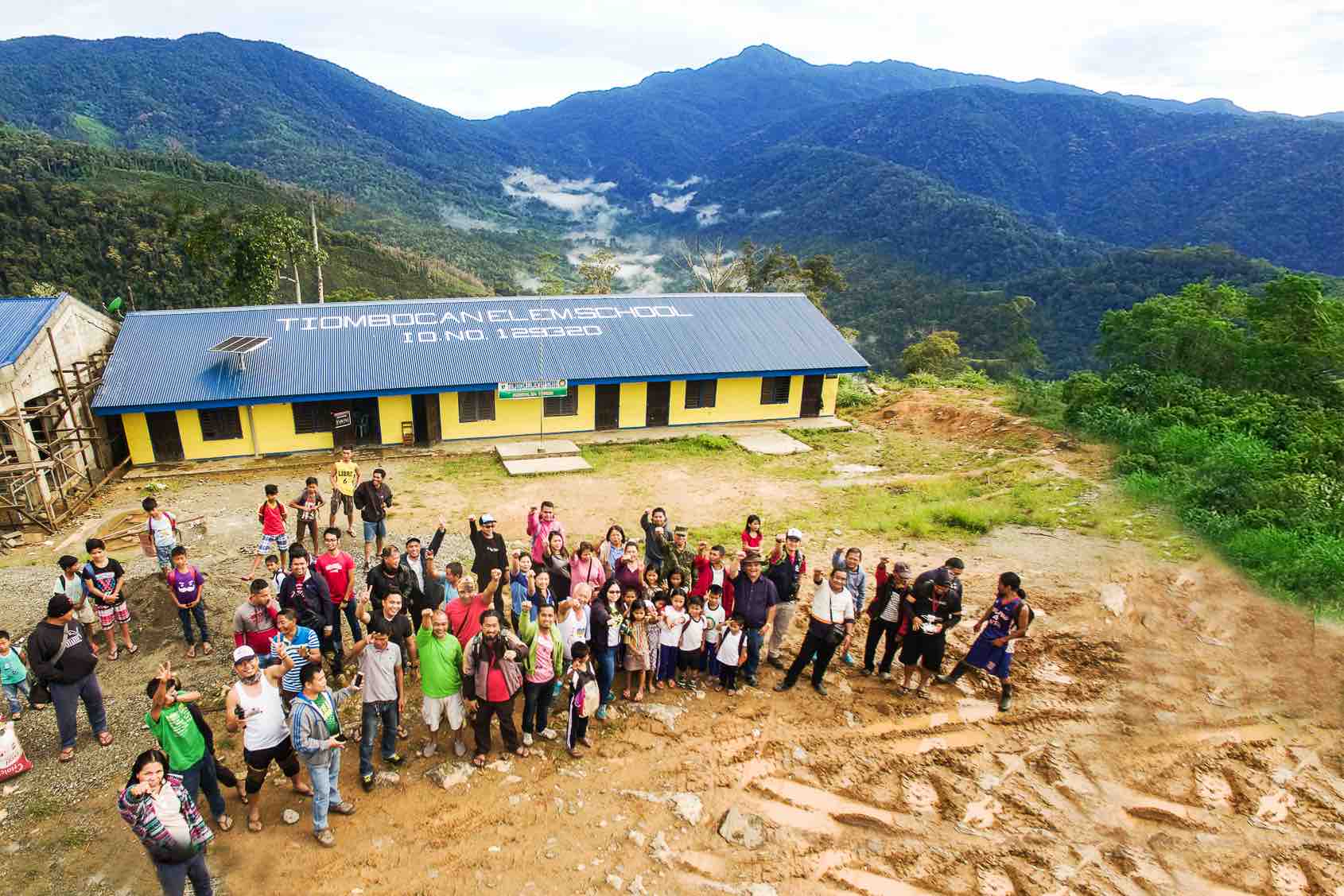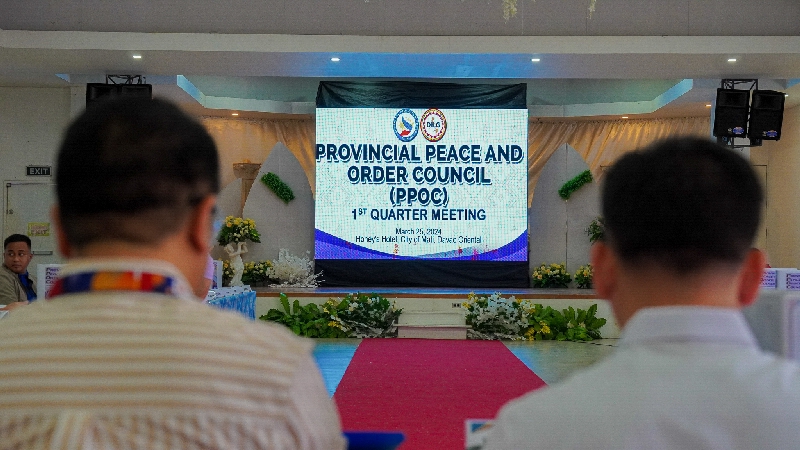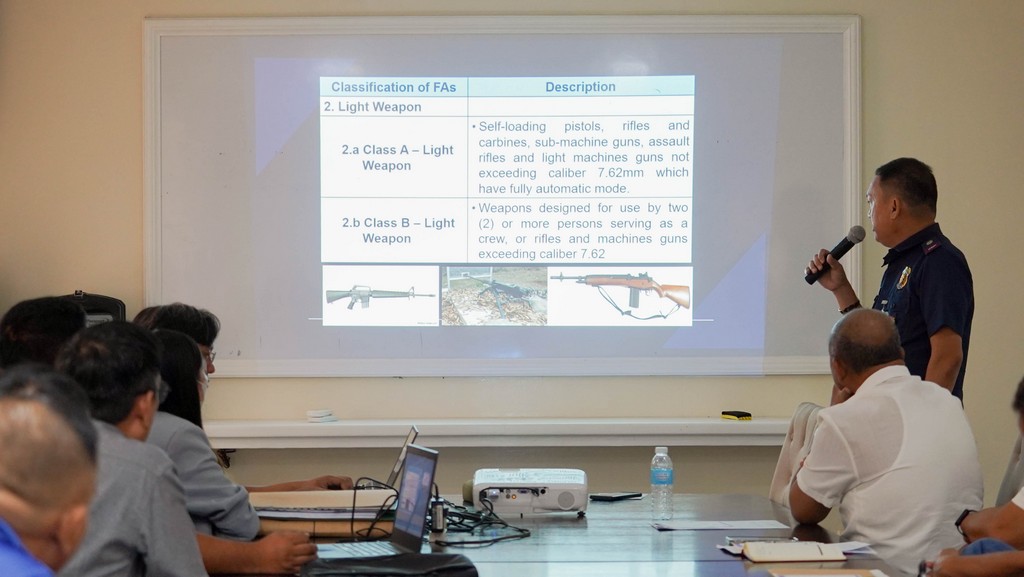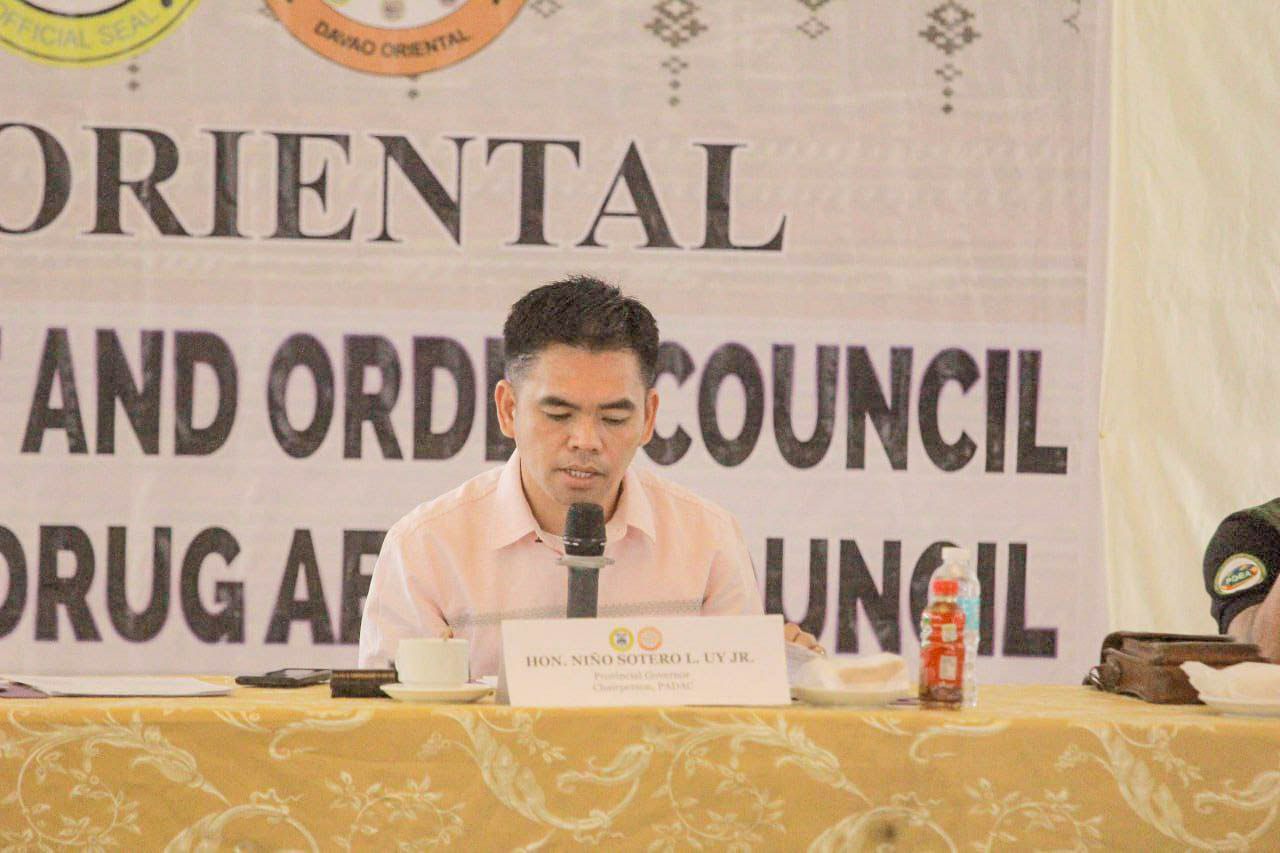DAVAO ORIENTAL – Armed with sheer determination to achieve durable and lasting peace, the Provincial Task Force to End Local Communist Armed Conflict (PTF-ELCAC) has been highlighting the inclusion and people’s participation at the heart of all its peace and development efforts through President Rodrigo Duterte’s “Whole-of-Nation” Approach widely known as Executive Order 70.
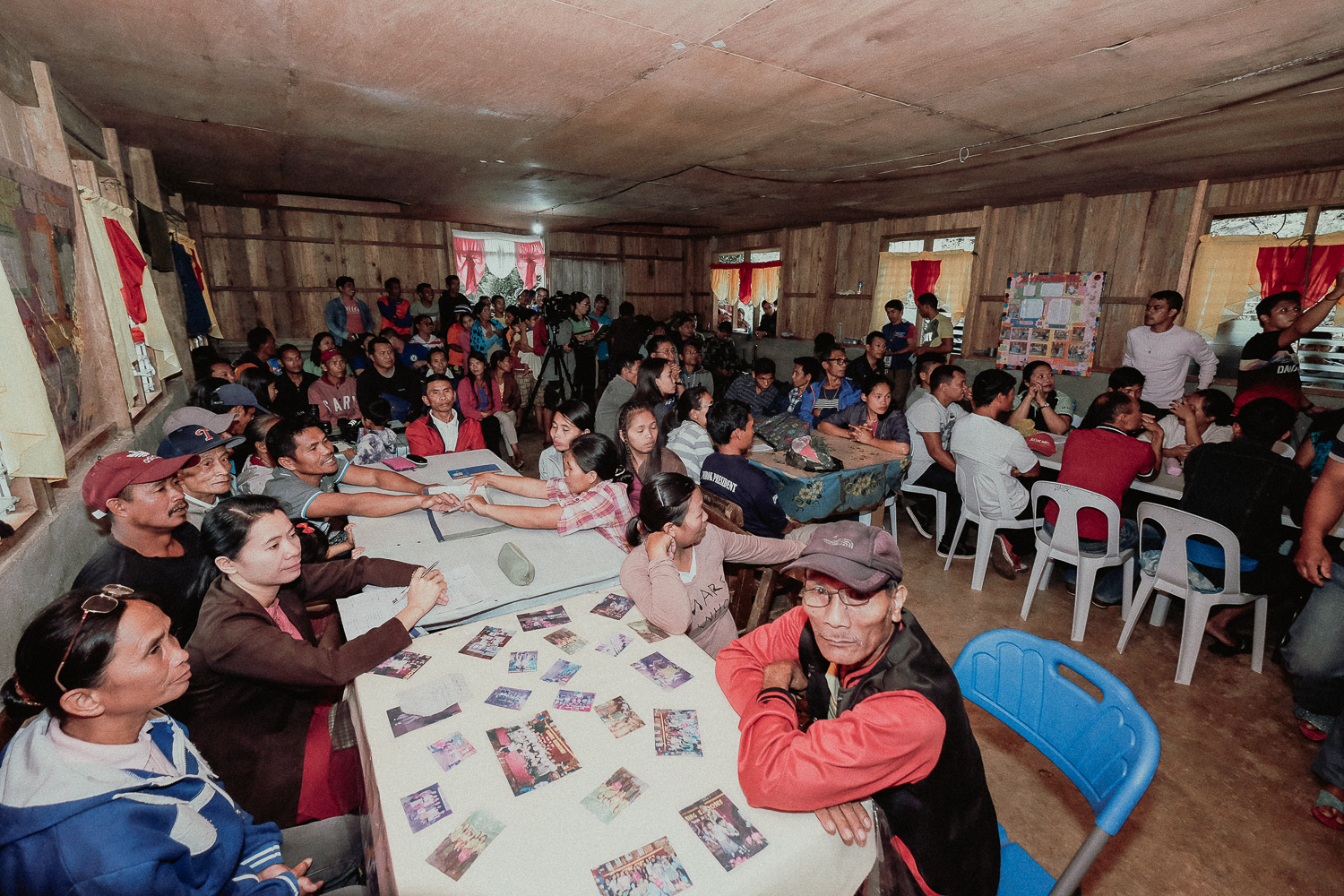
During the fourth round of the province’s implementation of this new national directive through its localized version – Executive Order 13 issued by Governor Nelson Dayanghirang, villagers from four hinterland sub-villages of Tiombocan, Bislong, Cabugayan, and Matigdao in Barangay Marayag in the municipality of Lupon were given the opportunity to voice out their community’s shared concerns as they listed proposed solutions to these gaps through a Multi-sectoral Inclusive and Participatory Barangay Development Workshop.
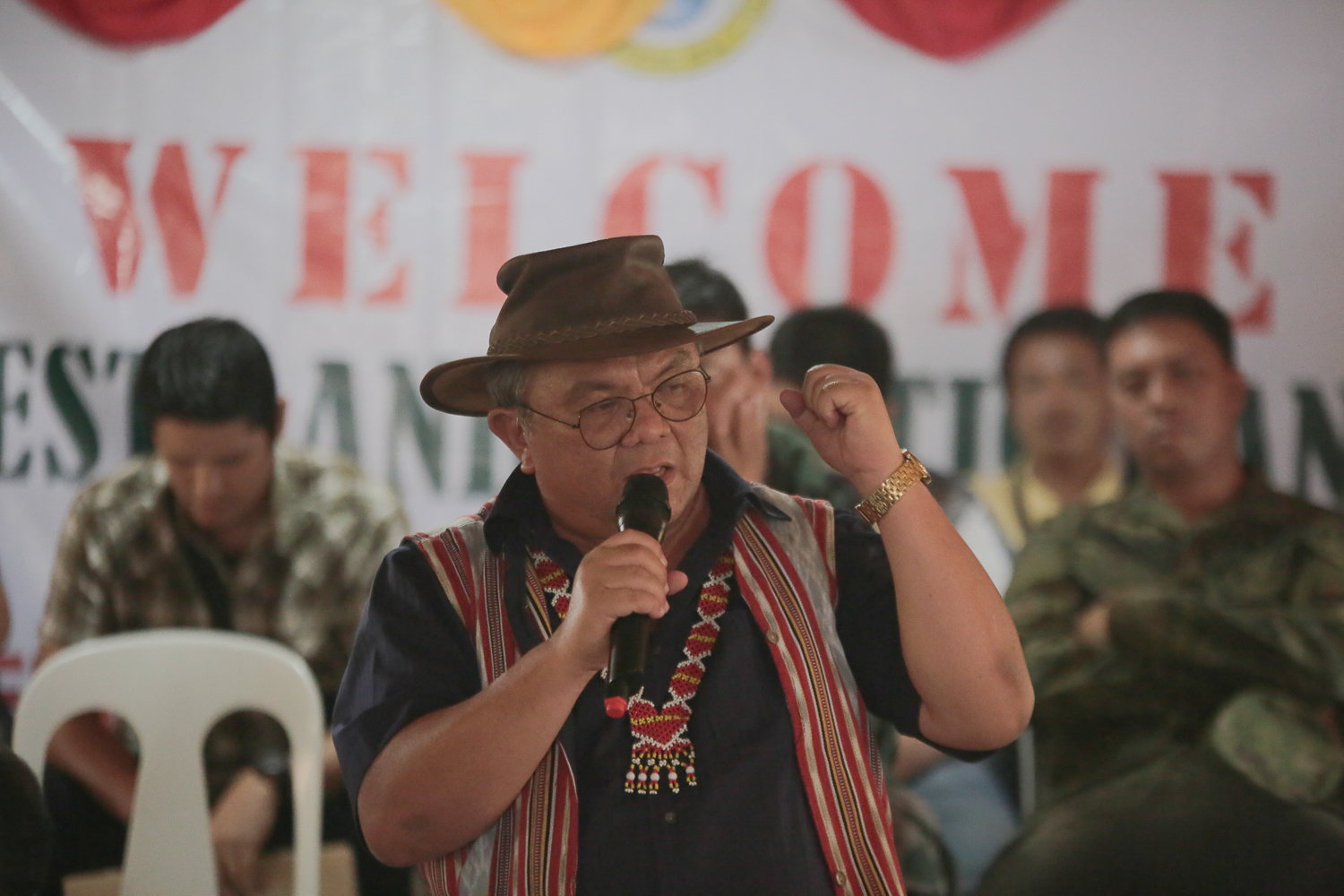
PTF-ELCAC Vice Chairman Ednar Dayanghirang, who spearheaded the workshop and dialogue held on Tuesday, July 22, at the Baptist Church Hall in Sitio Tiombocan, emphasized that in order to build durable peace, the government must exercise a true inclusive political process through inclusion and participation of all sectors where people’s voices are truly heard.
At the dialogue cum workshop, various sectors of the community which include women, youth, Indigenous Peoples, senior citizens, business group, and farmers listed down their urgent concerns which require attention from the government.
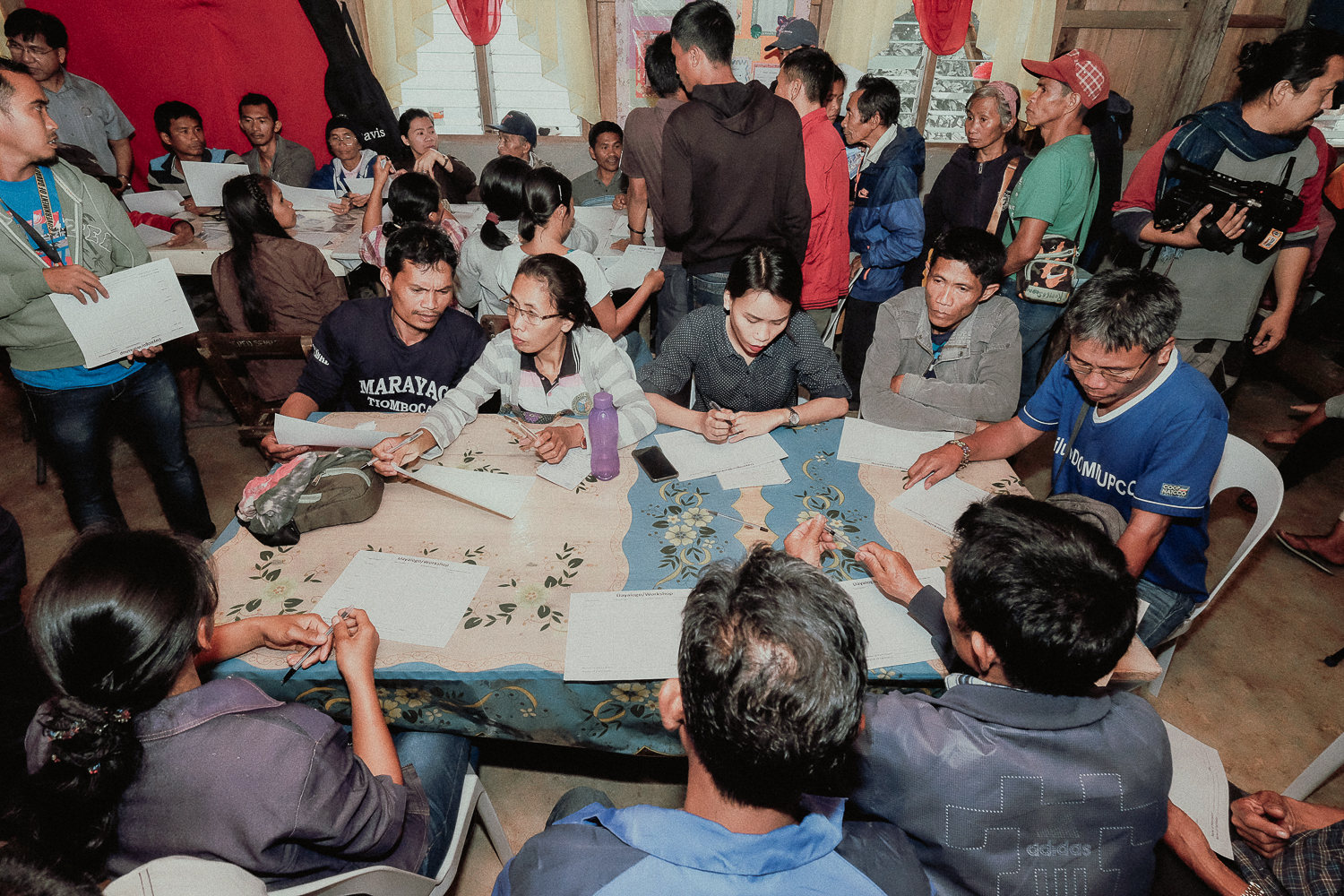
In order to come up with a solid output, the activity followed a step-by-step process. “The first step is visioning,” said Dayanghirang, who explained the workshop mechanics. “Here, participants were made to list down their dreams for their families, community, and for the sector they represent. Next they identify the bottlenecks that kept them from achieving their dreams. Third, they list the possible solutions to the problems leading to the fourth step which is the government agencies’ response,” he bared.
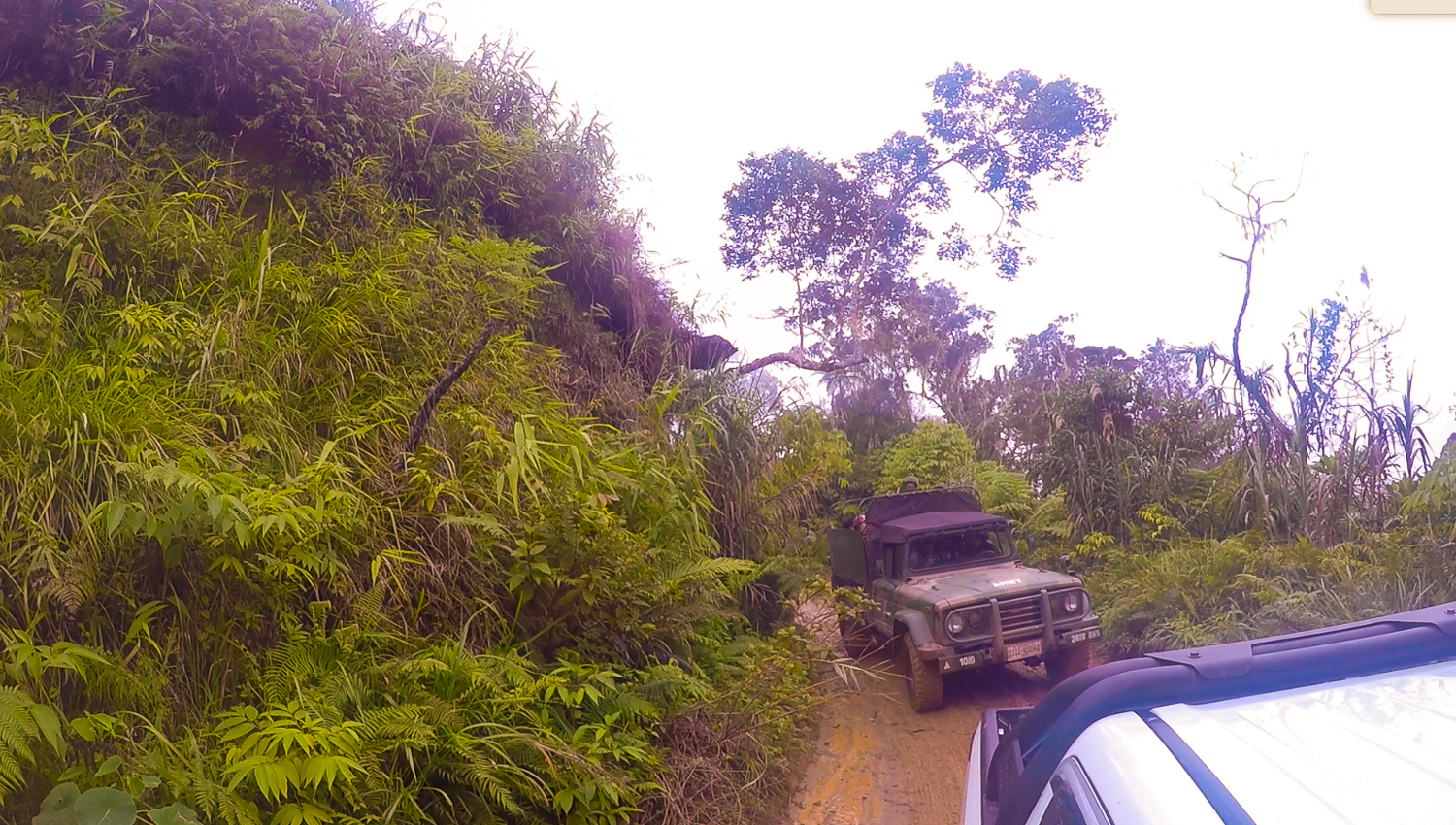
Apparently, the main gaps and issues which quickly emerged are those commonly shared by most marginalized and remote communities. This include poor road condition, lack of vital infrastructures such as water systems, electricity, housing, and school facilities; lack of livelihood opportunities, skills training, and other basic services.
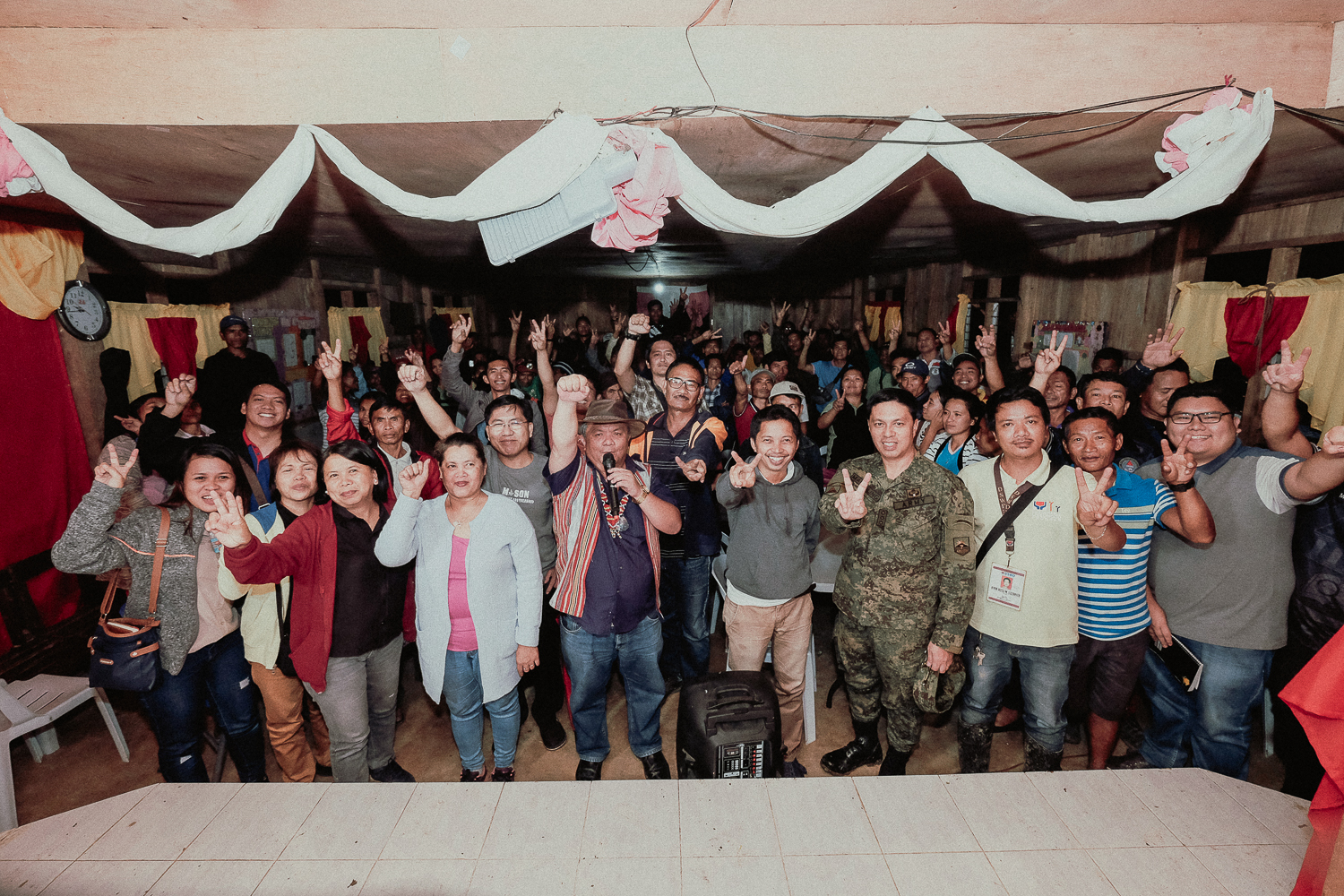
Members of the PTF-ELCAC composed of various national government agencies and provincial government departments, who braved the six-hour journey through the treacherous, rugged, 31-kilometer dirt road leading to the sub-village of Tiombocan, attentively listened to the villagers’ urgent concerns. Vowing to address the identified gaps, the agencies listed down interventions, both short and long-term, which their respective agencies can readily deliver.
Among the interventions committed by the agencies were the processing of the Certificate of Ancestral Domain Title, assistance for planting falcata trees and crops, provision of public toilets, Materials Recovery Facility, a corn milling facility, facilitation of driver’s license through special accommodation, construction of water systems, facilitation of the creation of cooperatives, accreditation of People’s Organizations to avail of livelihood assistance and enabling them to sit down in local special bodies, provision of livelihood projects and agriculture-based training such as tilapia and poultry production, and training in abaca disease prevention, among many others.
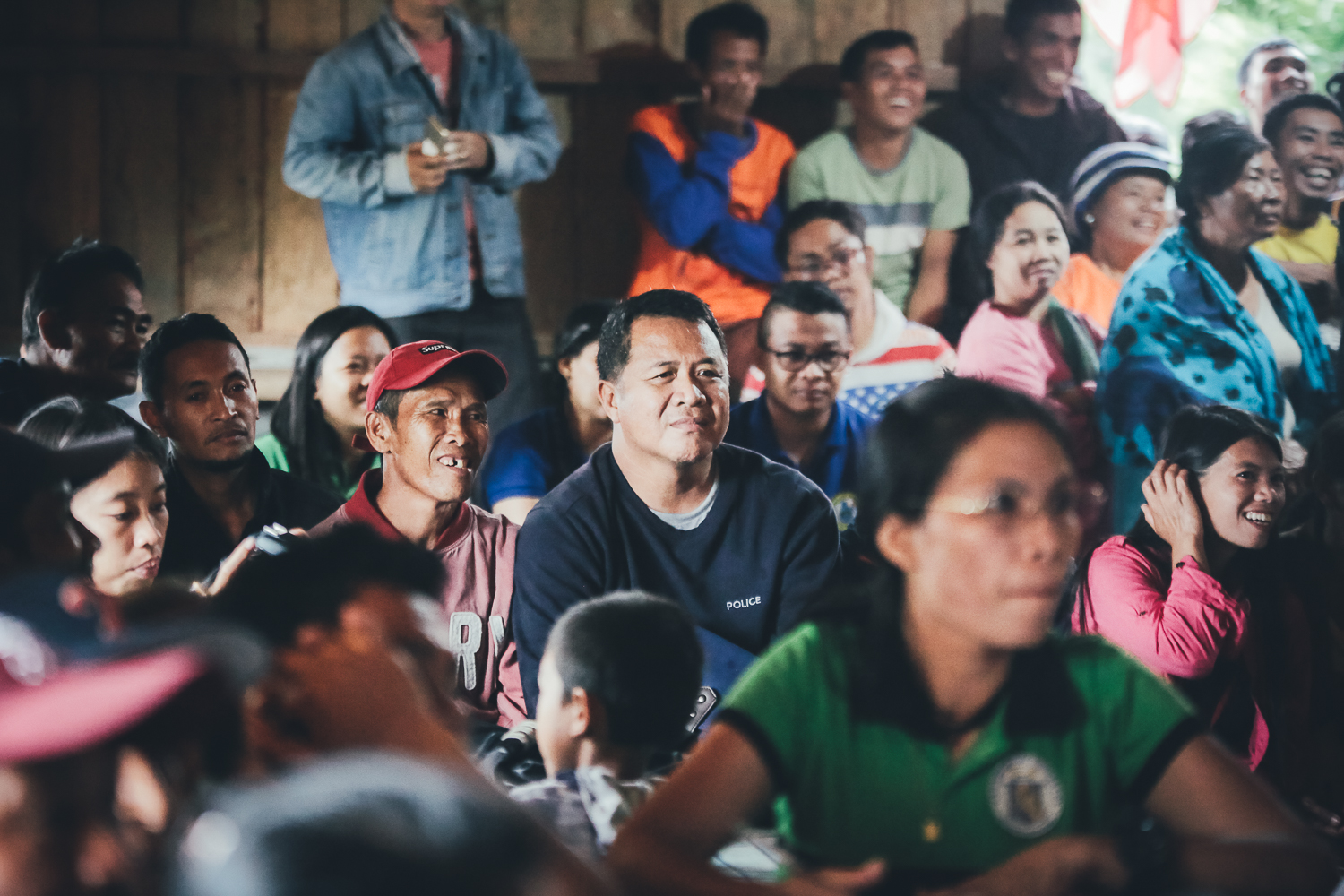
Meanwhile, triggering more excitement among the villagers was the news coming from the Office of the Presidential Adviser on the Peace Process. Aside from its commitment to provide scholarships for Indigenous Peoples here and the construction of multi-purpose tribal hall with student dormitories, it also announced the agency’s endorsement for the construction of two proposed road projects leading to Sitio Tiombocan, specifically the Matabang to Bislong and Tiombocan to Calatagan roads, which are set for the year 2020 and 2021. OPAPP Representative Micheal Patrick Sibbaluca divulged that by the time these road projects will be approved, residents will be given the option to realign the project that would best suit their needs. “That’s how flexible the government is,” he said, adding that the agency has also earmarked funds for the survey of ancestral domains for the year 2020.
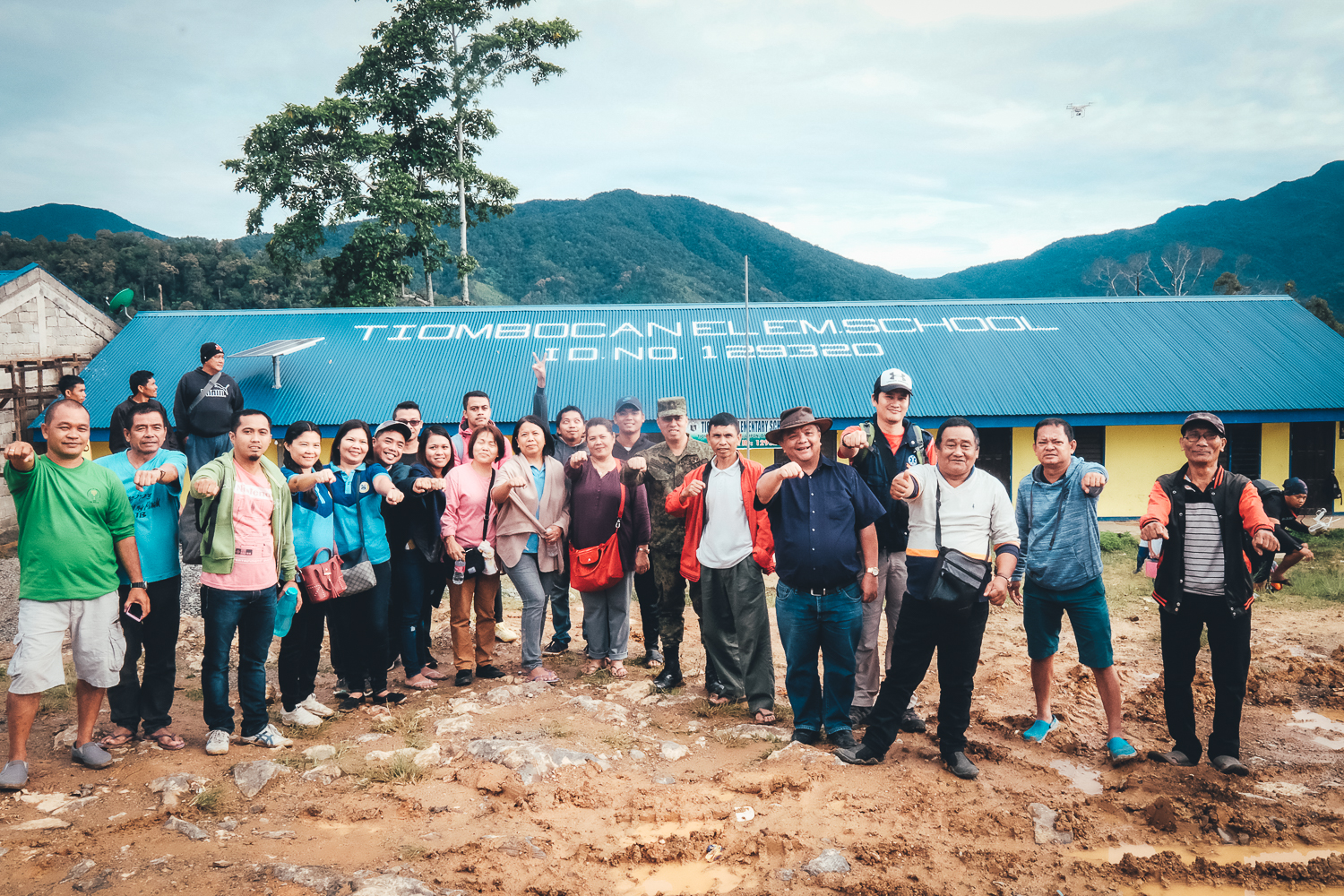
Hearing out the community’s concerns in one setting, the participating government agencies said that they were able to appreciate the beauty of convergence as they come up with concrete proposed interventions that are not only tangible steps to alleviate conflict but also complement other agencies’ programs, thus, avoiding duplication and waste of government resources.
While all these development will not happen overnight, the members of the PTF-ELCAC reminded the residents to be patient and to actively support the government’s thrusts which are all anchored to the common goal of long-term growth and sustainable peace.
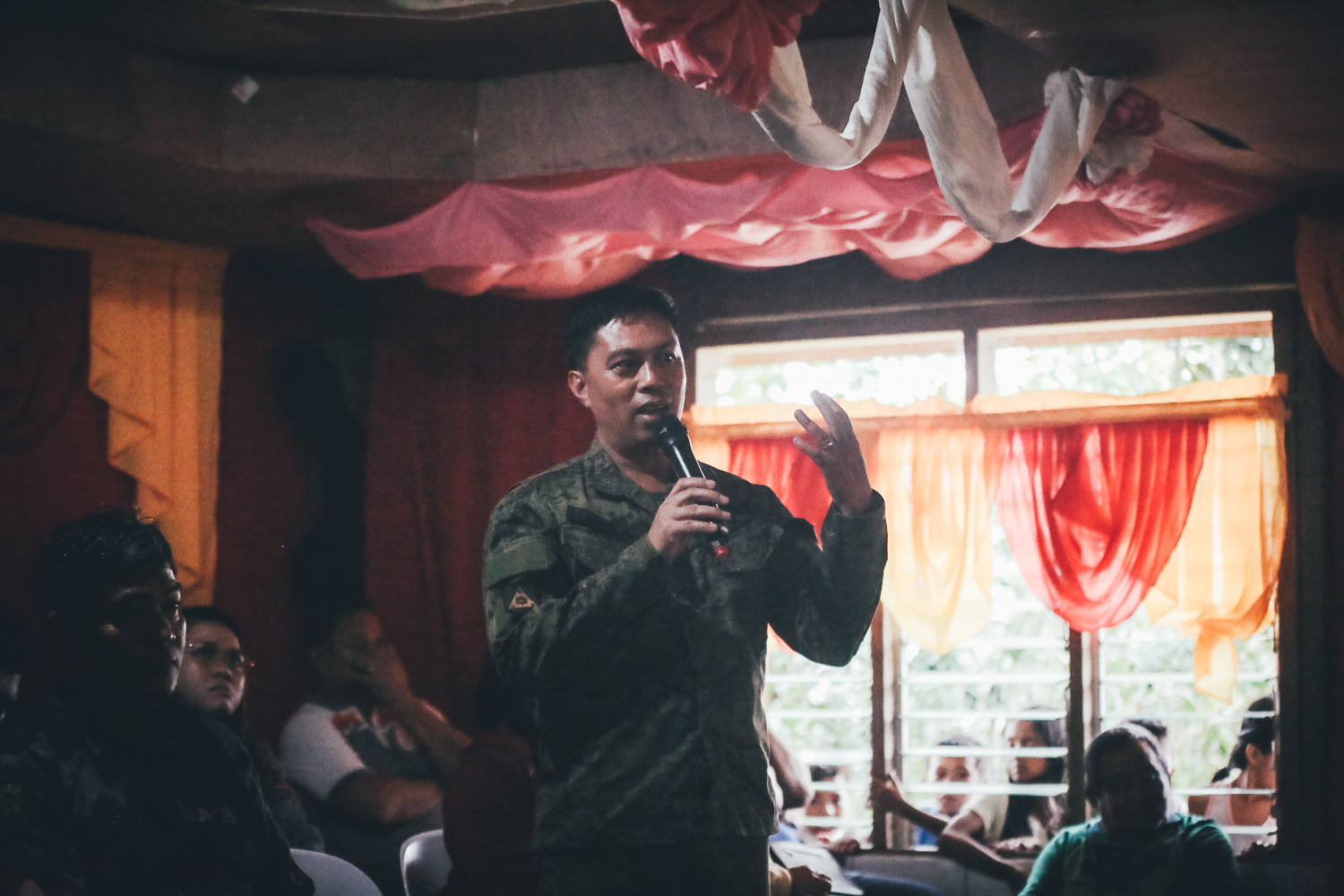
Col. Oliver Maquiling, 701st Brigade Deputy Commander of the Philippine Army, in his impassioned plea asked the villagers to help the government in its effort to achieve true peace. He urged the villagers to inform those who are still in the movement to avail of the government benefits for rebel surrenderees through the Enhanced Comprehensive Local Integration Program (E-CLIP).

Overwhelmed with hope for a better future for his small community, Excel Budadong, Chairman of Sitio Tiombocan, said he anticipates that these development would finally bring progress and peace to his peace-loving community.
Whole-of-Nation Approach a Solution for Peace
The execution of the Whole-of-Nation Approach for the Attainment of Sustainable Peace mandated by the President enjoins all stakeholders and key actors to pour all efforts to end once and for all the decades-long armed struggle of the CPP-NPA-NDF.
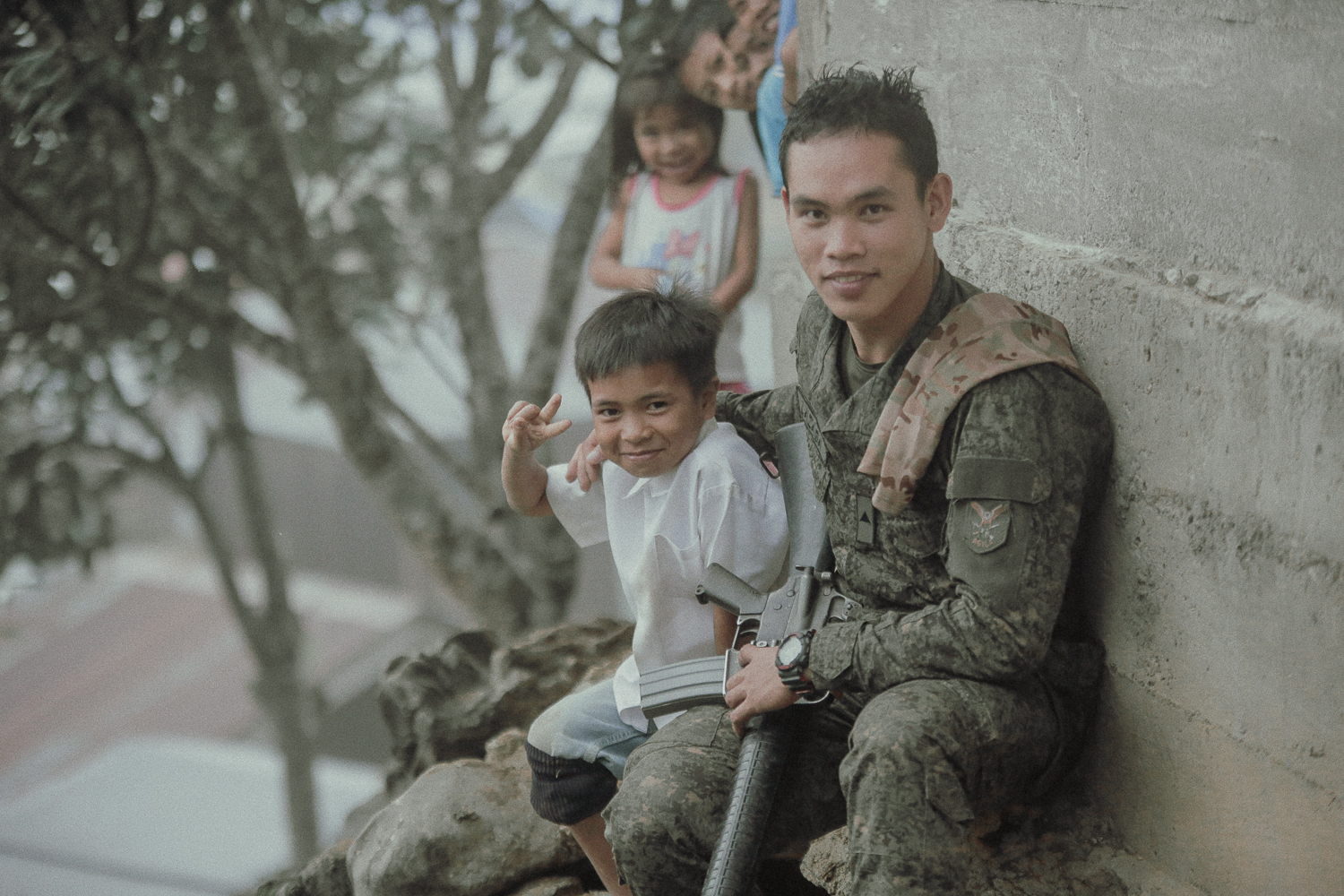
This new directive, however, shifts peace-building and anti-insurgency efforts from the traditional approach which heavily relies on the military to now being civilian government-led.
“Insurgency is not solely a military problem. It is a political problem. And there is no better way to address conflict and insurgency other than good governance wherein the local government unit takes the lead,” says Governor Dayanghirang, who chairs the PTF-ELCAC.
Through the President’s Executive Order 70 and the Governor’s Executive Order 13, government agencies are enjoined to prioritize the hinterland areas. “The order mandates us to cover first the farthest areas. No matter how far, they will be prioritized. Because it is in the mountains where the most marginalized people live. We have to make our presence felt in the farthest areas,” said Ednar Dayanghirang.
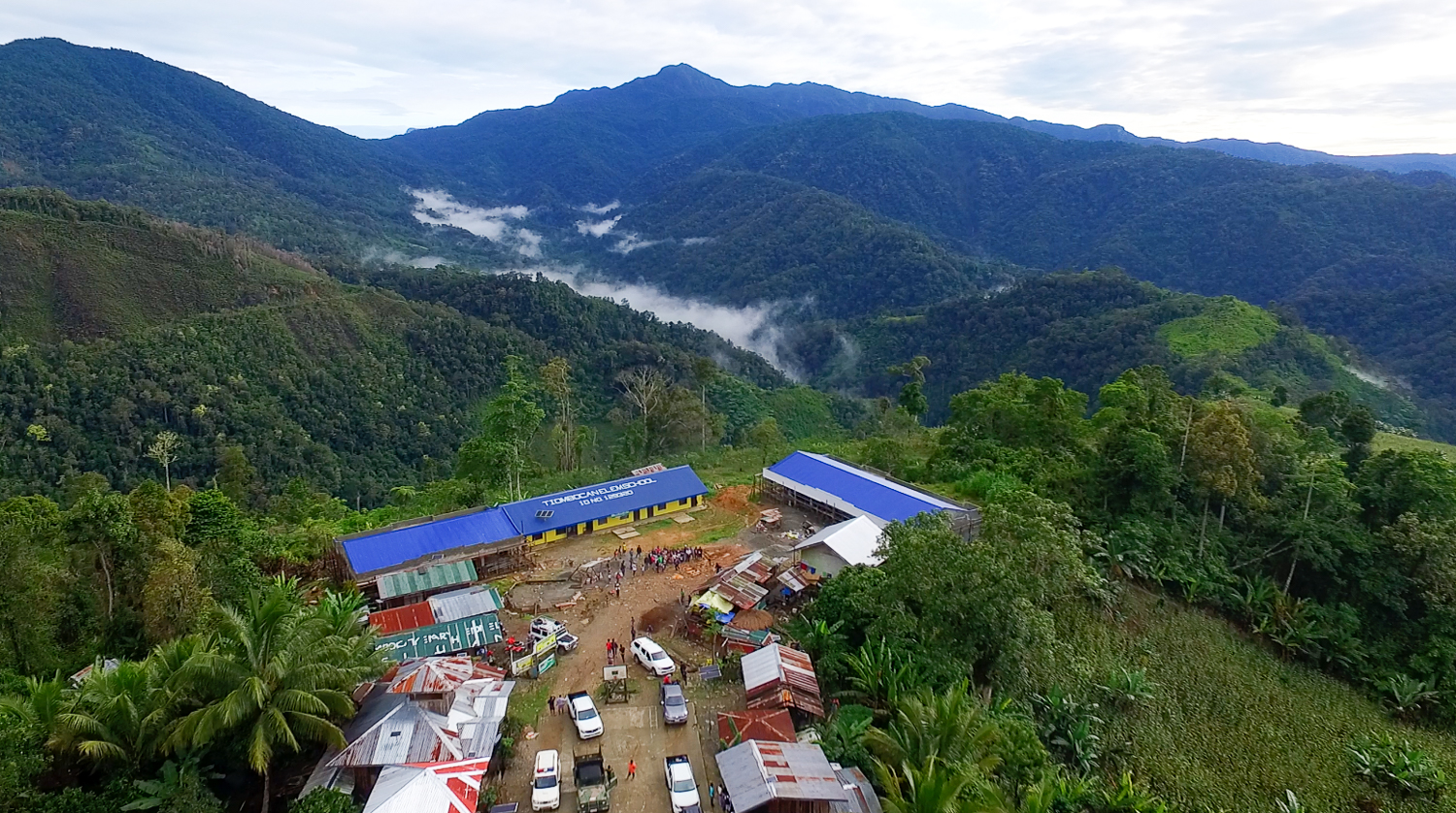
Perched on top of a mountain with an elevation of 1,070 meters above sea level, the four sub-villages are home to about a thousand residents who mostly live off through farming corn and abaca.
Amidst its lush and vast stretch of intact forests with the majestic Mount Campalili serving at its backdrop, these communities have endured much hardships. Having no electricity and with poor road conditions, Sitio Tiombocan along with the other three communities can easily be classified as areas belonging to the Geographically Isolated and Disadvantaged Areas (GIDAs). A crossroad of three towns, these territories were used to be strategic areas for the Communist NPA group to hide and cross borders.

Meanwhile, the Philippine Army, the lead agency for peace and security is “confident” that all these collective efforts would eventually lead to transformative change in the communities, thus, would finally end the 52-year-old Communist insurgency
“Tackling insurgency alone is not enough. We need to address its roots. We are thankful of the government’s new approach to go down to the grassroots. Through this, we can now focus on our main duty which is to provide a secured environment for all,” said Col. Maquiling.By Karen Lou Deloso/ Photos by Eden Jhan Licayan

